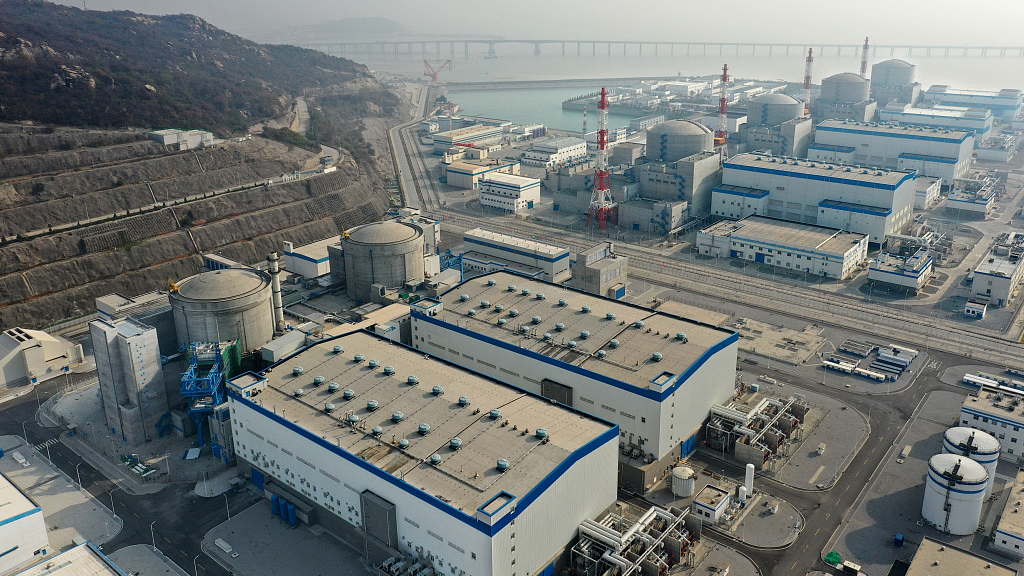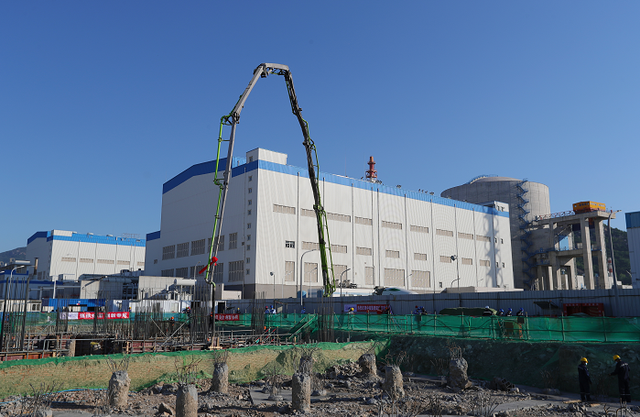
China began constructing the country's first nuclear-powered stream supply project for industrial purpose in Lianyungang City of its eastern Jiangsu Province, May 27, 2022. /CFP
China began constructing the country's first nuclear-powered stream supply project for industrial purpose in Lianyungang City of its eastern Jiangsu Province, May 27, 2022. /CFP
China has started construction of its first nuclear-powered steam supply project for industrial purpose at Lianyungang City in eastern Jiangsu Province on Friday. The project will utilize heat generated by the nuclear power to convert desalinated sea water into clean, stable and efficient industrial steam and reduce energy consumption and carbon emissions.
According to China National Nuclear Corporation (CNNC), its Tianwan nuclear-powered project, which supplies industrial steam in Lianyungang City, with a total investment of 730 million yuan ($108.4 million) and construction period of 24 months, will be fully operational by the end of 2023. New desalination plants, power stations, and pumping stations will also be built under the project.

Construction site of CNNC's Tianwan nuclear-powered steam project in Lianyungang City of China's eastern Jiangsu Province, May 27, 2022. /CNNC
Construction site of CNNC's Tianwan nuclear-powered steam project in Lianyungang City of China's eastern Jiangsu Province, May 27, 2022. /CNNC
At present, China's industrial steam is mainly produced by coal-fired power plants or coal-fired boilers. The project will explore a new way to meet the demand for industrial steam and reduce comprehensive energy consumption as well as environmental pollution, said the CNNC.
Liu Yongsheng, the project manager, told China Media Group (CMG) that "upon completion, the project will supply 4.35 million tonnes of steam annually, reduce the annual burning of coal equivalent by 362,800 tonnes, carbon dioxide by nearly 0.97 million tonnes, sulfur dioxide by 166.88 tonnes and nitrogen oxide by 238.54 tonnes, which is equivalent to planting 2,900 hectares of trees."

